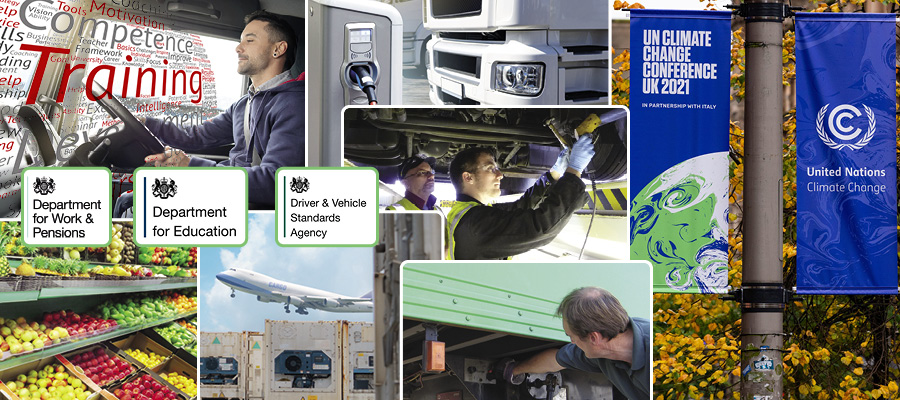🕒 Article read time: 4 minutes
Policy wins – August 2022

The logistics industry faces significant challenges and Logistics UK has had a busy year to date pushing for change in the key policy areas that matter most to members.
There has been a culmination of small and big wins across many policy areas – locally and for the UK as a whole. Below is an overview of some of the updates and changes so far this year.
Going forward, Logistics UK will be focussed on crucial matters such as rising cost pressures, including fuel prices, the switch to alternatively fuelled vehicles and customs changes.
DECARBONISING LOGISTICS
Logistics UK published its first Decarbonising Logistics report in May to review progress made towards meeting the UK’s legally binding target to achieve net zero by 2050. Logistics UK has challenged government to provide clarity to the industry on legislation and available support for businesses looking to adopt zero tailpipe emission vehicles.
Logistics UK has achieved several wins such as those detailed below.
- Government’s announcement of £200m funding for an extensive zero emission road freight demonstrator programme, starting with demonstrations of battery electric and hydrogen fuel cell HGVs. Plus, a commitment to work with industry to develop a plan for the rollout of zero tailpipe emission HGV infrastructure.
- The extension of both the Category B licence derogation and plug-in van grant for alternatively fuelled vehicles.
- £300 million funding for the plug-in car grant is being refocused on other vehicle groups, including vans, to encourage take up of electric vehicles in those developing sectors, and to expand the public charging infrastructure.
ADDRESSING THE SHORTAGE OF LOGISTICS SKILLS
A lack of available industry skills, such as HGV drivers, has been a barrier for many members. Logistics UK has worked with the Department for Work & Pensions and the Department for Education on a series of webinars, supported by our Funding and support for logistics skills guide, to promote the available routes for funding to find skilled workers or upskill existing ones.
Another important launch for Logistics UK is Generation Logistics, the new flagship campaign with the aim of getting people to understand the logistics sector, the breadth of roles available across the industry, and why it is an exciting career to consider. Find out more about the campaign at https://logistics.org.uk/generation-logistics. This campaign provides an important platform to build on the momentum created over the pandemic, where logistics has been recognised as an important sector, and make small steps to proactively address the skills shortages we face.
REGULATORY CHANGE
Making sure regulation works for members is a key part of our policy work. Logistics UK has worked with Driver Vehicle Standards Agency (DVSA) on tightening prohibition clearance rules for non-GB operators, demonstrating that actions were ineffective in achieving remedial action. We have also worked with DVSA on revising its Guide to maintaining roadworthiness publication, following member concerns and proposed a quicker, simpler process for MOT appeals, which it adopted in February.
FUTURE OF FREIGHT
Logistics UK was pleased to see the publication of the Government’s Future of Freight Plan – the first cross-modal and cross-government plan for the UK freight transport sector. This includes many of Logistics UK’s asks, such as:
- addressing the challenges Logistics UK has highlighted around planning and logistics, with a commitment from government to publish a call for evidence in the coming months;
- the creation of a Freight Energy Forum and a review of regulatory barriers to deliver zero carbon energy infrastructure, in line with Logistics UK's asks for support for energy and infrastructure needs for commercial vehicles;
- a commitment that freight and logistics training offers are reformed to encourage transferable qualifications;
- a national freight network will be identified and a valuation of freight studies undertaken to understand freight better, collect data and to value freight’s role in the economy better.
- Government has committed to £7 million of investment for the logistics industry to boost the uptake of innovative new technologies.
Our big challenge now is ensuring the commitments made in the plan remain a priority for government and stakeholders so that together, we can build a prosperous future for the logistics industry.
*www.logistics.org.uk/campaigns
Published On: 04/08/2022 16:00:00

Comments Section
If you are a Logistics UK member login to add comments.